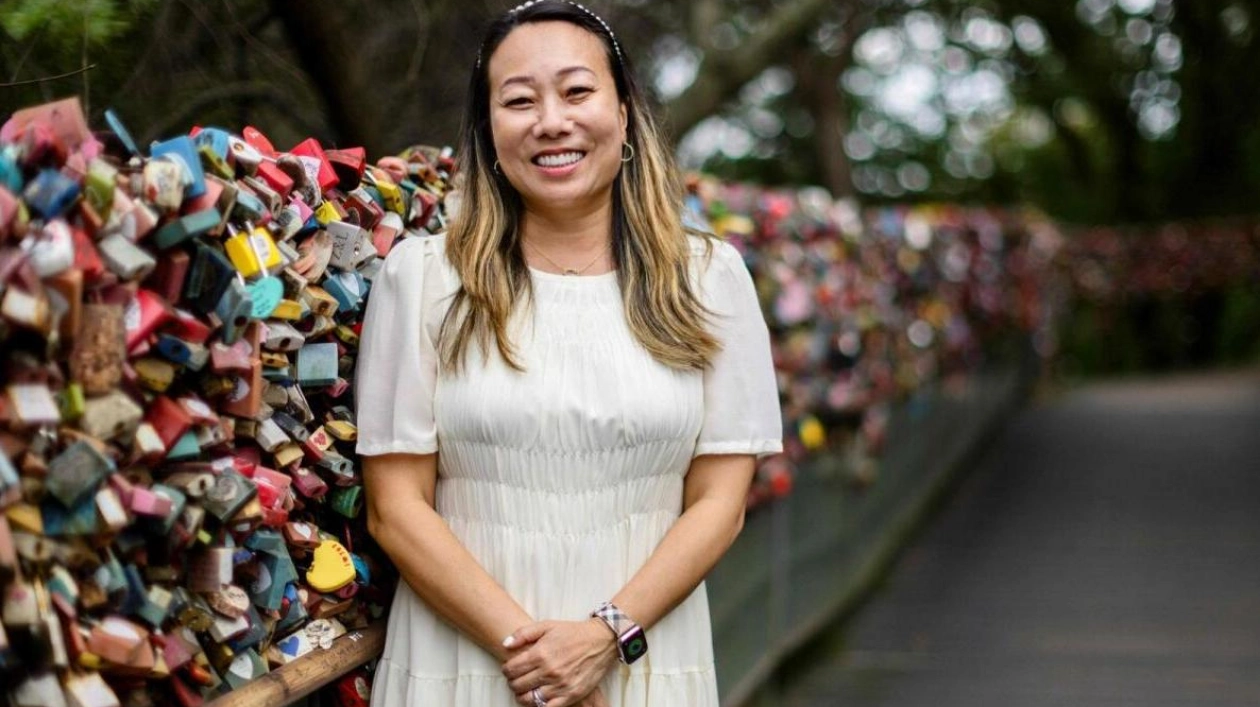South Korean-US therapist Jeanie Chang, who also organizes K-drama tours, stands beside the 'Love Locks' at Seoul's iconic Namsan Tower, a frequent K-drama filming site. – AFP
If you've ever indulged in a marathon of K-dramas like 'Squid Game' or 'Crash Landing On You', a Korean-American expert has some positive news: it likely enhanced your mental well-being. High production standards, exceptional acting, and charismatic stars have propelled South Korean TV shows to global popularity, but therapist Jeanie Chang believes there are more profound reasons behind their widespread appeal. With storylines that delve into everything from profound sorrow to the bliss of new love, K-dramas can help viewers reconnect with their emotions or process past traumas, imbuing the shows with a healing quality that transcends cultural boundaries.
Chang, who was born in Seoul but raised in the United States, found K-dramas particularly beneficial in rekindling her connection to her heritage, which she had initially rejected in her quest for assimilation. However, she emphasizes that the themes in Korean dramas are universally relatable. 'Mental health is about how you feel, how you interact with others, and how your mind has been affected by various experiences. That's what we see in a Korean drama,' she explains.
Global viewership of K-dramas has surged in recent years, with many international viewers, particularly in key markets like the United States, turning to Korean content during the pandemic. Netflix data indicates that between 2019 and 2022, viewership of Korean television and movies increased six-fold, making Korean series the most-watched non-English content on the platform.
American schoolteacher Jeanie Barry discovered K-dramas at a family funeral, when a friend recommended the 2020 series 'It's Okay to Not Be Okay' to help her through a tough period. 'There was something about the way this culture deals with trauma and mental depression that really resonated with me,' Barry said. She had traveled to South Korea as part of a K-drama tour organized by therapist Chang. 'I started to grieve when I hadn't been able to before. It was a lot of tears during that drama, but it also made me see that there is a light at the end of the tunnel,' she added.
Barry, who has since watched 114 K-dramas, effectively stopped watching English-language television. 'They let me soften my heart,' she said. Fellow tour member Erin McCoy, who has struggled with depression since her teenage years, found that K-dramas helped her manage her symptoms. 'With depression, you become numb and don't really feel bad, but you also don't feel good. You just don't feel anything,' she said. 'K-dramas allowed me to experience emotions again. There are so many highs and lows in each one, and as I felt the characters' emotions, it helped me relate to my own more,' she explained.
While the idea that binge-watching K-dramas can aid mental health might seem unconventional, it aligns with long-standing psychotherapy concepts. 'Watching Korean dramas can be beneficial for anxiety and depression from the perspective of art therapy,' said Im Su-geun, head of a psychiatry clinic in Seoul. Art therapy, initially involving drawing in the 1940s, has evolved to include other artistic activities. 'Visual media like Korean dramas have significant strengths that align well with psychotherapy,' he noted.
K-dramas, or television and cinema in general, can help viewers 'gain insights into situations from a new perspective, fostering healthy values and providing solutions to their issues,' Im said. While unlikely to be prescribed by a doctor, a therapist might recommend a specific drama related to a patient's case, which could be beneficial. For instance, it can offer a roadmap for patients 'facing specific situations, such as breakups or loss,' he added.
Source link: https://www.khaleejtimes.com






